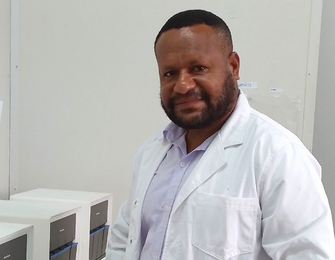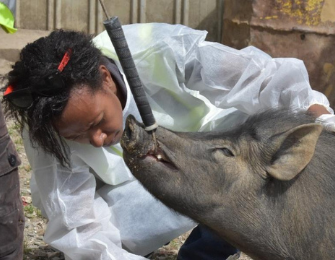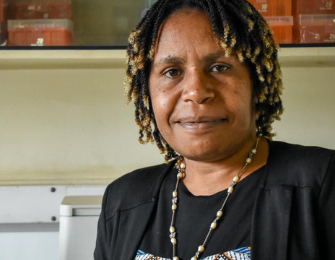After working in malaria research with the Papua New Guinea Institute of Medical Research for nine years, Dulcie Lautu-Gumal commenced a PhD at the Walter & Eliza Hall Institute of Medical Research and then moved to the Burnet Institute investigating molecular markers of antimalarial drug resistance.
 “These molecular markers or genetic signatures in parasites can help us identify distinct populations in PNG that could be at risk of antimalarial drug resistance, in my work I’m particularly interested in artemisinin resistance," she says.
“These molecular markers or genetic signatures in parasites can help us identify distinct populations in PNG that could be at risk of antimalarial drug resistance, in my work I’m particularly interested in artemisinin resistance," she says.
“Resistant malarial parasites have emerged and spread rapidly in Southeast Asia. These parasites are resistant to artemisinin combination therapy (ACT) which is the WHO-recommended treatment for uncomplicated malaria. It’s threatening to PNG because we are using artemisinin combination therapy and recently we’ve had reports identifying a particular mutant parasite in the county,” she says. Because of this, it’s crucial that outbreaks of drug resistant strains are discovered and controlled quickly.
Dulcie’s role in the Indo-Pacific Centre for Health Security's STRIVE project is developing sensitive molecular assays that can detect resistant parasites which will be used in real-time surveillance.
Dulcie says working at Burnet is rewarding because she can translate her work from the lab into public health. “My work takes me from designing these lab assays, to implementing them as diagnostic strategies for antimalarial drug resistance surveillance programs in public health. I’m proud that I get to see the whole thing,” she said.
"It’s important for women in STEM to build strong networks and encourage each other."
Read more:
- STRIVE Project Page
- Profile first published in International Women's Day 2021 features Burnet Institute's STRIVE team




